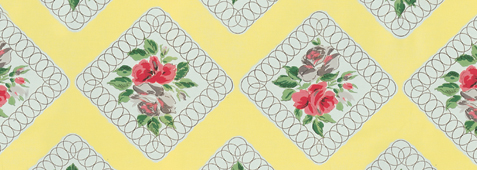Yet I hesitated to read The Victorian Chaise-Longue. Could it possibly live up to such high expectations? Wouldn’t it be awful to not have something new by Marghanita Laski still to read?
The second problem was solved when Persephone Books kindly reissued To Bed with Grand Music. It was time to open the pages of The Victorian Chaise-Longue.
Could it live up to my expectations?
“Will you give me your word of honour,” said Melanie, “that I am not going to die?”
It is the middle of the twentieth century. Early in Melanie’s pregnancy her doctor found a patch on her lung – an early sign of tuberculosis. She now has a son, but she hasn’t been allowed to leave her bedroom or be in close contact with her child since the birth.
But now Melanie’s health is improving, and the doctor accedes to her wish to go downstairs and lie upon the Victorian-Chaise Longue.
It’s a strange piece of furniture. Old, worn and out of keeping with the rest of the house, and yet Melanie was drawn to it. She had to have it.
Melanie is spoiled, but she has charm and I couldn't help sympathising with her situation. And wondering to what degree her upbringing, her family and society had taught her to behave as she did.
She falls asleep on her chaise-longue. And she wakes up on it. But she wakes up a hundred years earlier, in Victorian England. Where is she? Why is she being called Milly?
Melanie thinks she is in a nightmare. She tries to wake up, but she can’t. This is real. She is trapped and helpless.
Marghanita Laski conveys her feelings quite perfectly. The atmosphere is claustrophobic, and deeply unsettling. And the more you think the more unsettling it becomes.
Melanie gradually finds out more about Milly’s life. The similarities in their lives and their circumstances are extraordinary, but the consequences in their different times are starkly different.
“We seem to be together now, she explained, you and I, both hopeless. I think we did the same things, she told her, we loved a man and we flirted and we took little drinks, but when I did those things there was nothing wrong, and for you it was a terrible punishable sin.”
It would be unfair to say too much more, but the situation and Melanie’s emotions intensify as the story build to a conclusion.
The Victorian Chaise-Longue works on more than one level. It is a fine piece of storytelling and it is also a striking analysis of the changing position of women in society.
And while many authors would make a lengthy novel out of this material, Marghanita Laski distils it perfectly into just 99 pages.
The writing and the characterisation is as wonderful as my previous experiences with her writing had led me to expect.
And, once again, Marghanita Laski has come up with a stunning final sentence. How does she do that?!
The Victorian Chaise-Longue definitely lived up to my high expectations.



2 comments:
I have seen several reviews of this recently and I am thinking it would be true horror for me.
Victorian times were so restrictive for women and I know from experience the furniture is just plain uncomfortable!
I think I will be adding it to my list at 99 pages.
Marghanita Laski writes wonderfully and I would happily recommend any of her books. The concept of this one was beautifully simple and yes, it was a horrific situation.
Post a Comment